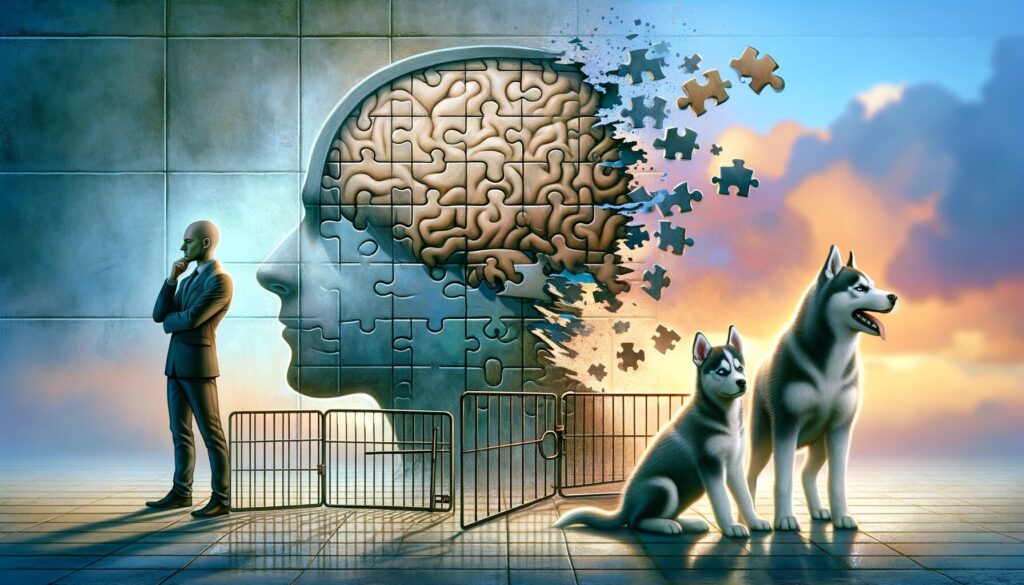
Your eyes, ears, and senses bring in too much information for your mind to handle consciously, so your brain needs to handle most of it unconsciously, freeing up your conscious mind at the expense of taking shortcuts. When it comes to your knowledge, memories, and reasoning, there’s too much again, so your brain needs to handle some of that unconsciously as well. This is a powerful mechanism, but it often leads to accidental filtering, where you ignore something that you’ve observed many times, leading to an inconvenience, erroneous judgment, or failure to complete a task, amongst others.
A few weeks ago, I was visiting my dad at his house. He has two husky puppies and an older cat that doesn’t like them, so he has a dog gate in the hallway to keep them separate. The handle broke a while ago, so the only way to open and close the gate is to reach down to the bottom of the gate and manually lift the doorstop to open it, then manually lower it to close it.
Repeating this process dozens of times throughout the day can put a lot of strain on the back, so I decided to try something to fix it. It didn’t seem like I could fix the handle itself, so I tried to get creative and solve the problem another way. Instead of fixing the handle, I’ll remove the need to bend down constantly by flipping the gate upside-down and re-attaching it to the wall, so that way, whenever anyone needs to go through, they can manually lift and lower the doorstop at roughly waist height.
I went through the whole process of taking apart the gate and flipping it upside down, and I almost finished reassembling it, before I realized there was a major flaw in my idea: there is a bar that runs throughout the entire bottom of the bar. If the gate’s upside down, that bar would cover the entire width of the hallway, preventing you from walking through it. As soon as I realized this, I kicked myself for not realizing it from the start, before I did all of that work.
This is a perfect example of filtering. I’ve seen that gate dozens of times, and when I had to start manually operating it, I’ve gotten many close looks at the bottom of it, yet I failed to consider it when I was working on flipping the gate.
The effects of filtering can be mitigated through multiple different strategies. A simple method is to deliberately review your thought process when working on something. Other strategies include setting up “trip wires” to help yourself realize when you’re about to make errors, looking at things from a different perspective to help your unconscious mind pick up on patterns you may have missed, and building in contingency plans to help you complete your tasks despite making such errors. In my case, the impact of my filtering was very low, but in situations with higher stakes, these kinds of strategies can make the difference between failing and succeeding.